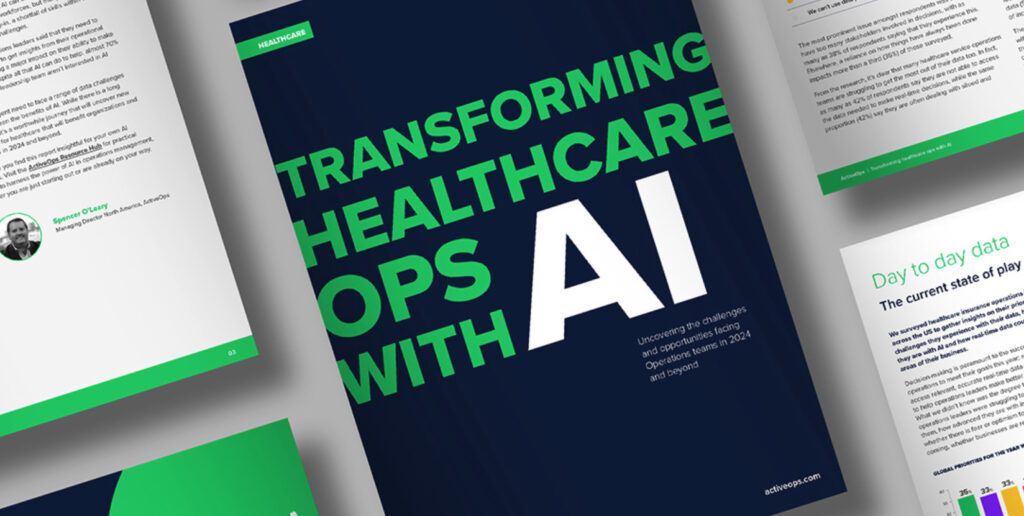
What You Should Know
– A new study by ActiveOps, a leader in AI-powered decision intelligence, paints a concerning picture of the US healthcare insurance industry drowning in data yet thirsty for insights. The crux of the problem? Critical decision-making is hampered by a severe lack of data accessibility, context, and trust.
– The ActiveOps study was commissioned Censuswide to survey Chief Operating Officers, Chief Financial Officers, and Senior Heads of Operations within the US healthcare insurance sector. The research focused on their priorities for 2024, challenges faced with operational data, and AI adoption. The research was conducted between February and March 2024.
The Report: Transforming Healthcare Ops With AI
The ActiveOps report explores the current challenges and potential benefits of AI and real-time data in US healthcare. The good news? There’s a clear recognition of the value proposition.
- Demand for Improvement: Four out of five operations leaders believe trusted, real-time data would empower better decision-making.
- AI as a Solution: Half of respondents see AI as a tool to identify patterns and predict outcomes, aiding strategic choices.
Key findings of the report include:
- Struggle to Leverage Data: A whopping 90% of surveyed executives say extracting meaningful insights from their data requires significant effort.
- Outdated Information: Over a third (36%) rely on data nearly a week old for crucial business decisions.
- Data Inaccessibility: A significant portion (42%) simply can’t access the data they need to make informed choices.
- Decision Paralysis: This lack of real-time data creates a form of “decision blindness,” hindering operational efficiency and productivity gains.
The Adoption Gap: Why AI Isn’t Ubiquitous Yet
Despite the acknowledged benefits, a significant gap exists between desire and implementation:
- Hesitant Implementation: While 78% acknowledge AI’s potential to unlock operational efficiency, a sobering 50% are just starting out with AI.
- Leadership Skepticism: Two-thirds (66%) report a lack of investment interest from leadership, further hindering progress.
Beyond the Gap: Key Barriers to AI Adoption
The study identifies key hurdles to wider AI adoption:
- Data Hygiene: Poor data quality undermines AI’s ability to generate reliable insights.
- Leadership Buy-In: Executive skepticism towards AI is a significant roadblock.
- Job Displacement Fears: Nearly half (42%) of those surveyed worry AI might replace their jobs.
The Future of Healthcare: A Data-Driven Revolution
The global healthcare AI market is expected to surge from $28.2 billion to a staggering $187.9 billion by 2030. This explosive growth reflects the transformative potential of AI:
- Data Analysis and Insights: AI can analyze massive datasets, extracting valuable insights that would otherwise be hidden.
- Streamlined Tasks and Automation: AI can automate administrative tasks, freeing up staff for higher-value activities.
- Real-Time Decision-Making: AI can provide real-time data analysis, empowering more informed and effective choices.
“These findings clearly demonstrate the push-and-pull nature of AI for healthcare insurers in the US,” comments Spencer O’Leary, CEO North America at ActiveOps. “While the benefits of AI, such as its ability to inform and streamline critical decision-making, are well recognized, there are still challenges and barriers to overcome in the US in terms of how AI is perceived and implemented. What’s perhaps more concerning is that it’s revealed a severe lack of real-time data, which is vital for operations teams who need to make quickfire decisions on how their businesses are managed.”

